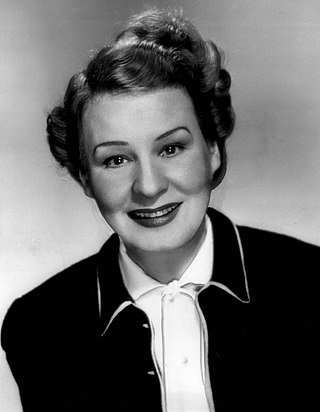
Rhetoric is the art of persuasion. It is one of the three ancient arts of discourse (trivium) along with grammar and logic/dialectic. As an academic discipline within the humanities, rhetoric aims to study the techniques that speakers or writers use to inform, persuade, and motivate their audiences. Rhetoric also provides heuristics for understanding, discovering, and developing arguments for particular situations.

Libanius was a teacher of rhetoric of the Sophist school in the Eastern Roman Empire. His prolific writings make him one of the best documented teachers of higher education in the ancient world and a critical source of history of the Greek East during the 4th century AD. During the rise of Christian hegemony in the later Roman Empire, he remained unconverted and in religious matters was a pagan Hellene.

Isocrates was an ancient Greek rhetorician, one of the ten Attic orators. Among the most influential Greek rhetoricians of his time, Isocrates made many contributions to rhetoric and education through his teaching and written works.

Shirley Booth was an American actress. One of 24 performers to achieve the Triple Crown of Acting, Booth was the recipient of an Academy Award, two Primetime Emmy Awards and three Tony Awards.
Bill Brandt was a British photographer and photojournalist. Born in Germany, Brandt moved to England, where he became known for his images of British society for such magazines as Lilliput and Picture Post; later he made distorted nudes, portraits of famous artists and landscapes. He is widely considered to be one of the most important British photographers of the 20th century.

Rhetorical criticism analyzes the symbolic artifacts of discourse—the words, phrases, images, gestures, performances, texts, films, etc. that people use to communicate. Rhetorical analysis shows how the artifacts work, how well they work, and how the artifacts, as discourse, inform and instruct, entertain and arouse, and convince and persuade the audience; as such, discourse includes the possibility of morally improving the reader, the viewer, and the listener. Rhetorical criticism studies and analyzes the purpose of the words, sights, and sounds that are the symbolic artifacts used for communications among people.

Wayne Clayson Booth was an American literary critic and rhetorician. He was the George M. Pullman Distinguished Service Professor Emeritus in English Language & Literature and the College at the University of Chicago. His work followed largely from the Chicago school of literary criticism.
Joseph John Castiglione is an American radio announcer for the Boston Red Sox of Major League Baseball, an author and lecturer. Castiglione is the recipient of the 2024 Ford C. Frick Award, presented by the National Baseball Hall of Fame and Museum.

Calvin Lawrence Booth is an American basketball executive and a former professional basketball player who currently serves as the general manager of the Denver Nuggets.

Lawrence Booth served as bishop of Durham and lord chancellor of England, before being appointed archbishop of York.

Rhetoric of science is a body of scholarly literature exploring the notion that the practice of science is a rhetorical activity. It emerged after a number of similarly oriented topics of research and discussion during the late 20th century, including the sociology of scientific knowledge, history of science, and philosophy of science, but it is practiced most typically by rhetoricians in academic departments of English, speech, and communication.
Richard McKeon was an American philosopher and longtime professor at the University of Chicago. His ideas formed the basis for the UN's Universal Declaration of Human Rights.
Rhetorical reason is the faculty of discovering the crux of the matter. It is a characteristic of rhetorical invention (inventio) and it precedes argumentation.

Scripps-Booth was a United States automobile marque based in Detroit, Michigan. Established by James Scripps Booth in 1913, Scripps-Booth Company produced motor vehicles and was later acquired by General Motors, becoming a division of it, until the brand was discontinued in 1923.
Rhetorical stance refers to the deliberate choices made by a communicator in shaping and presenting their message. It encompasses the strategic decisions regarding language, style, and tone that are employed to achieve a specific communicative purpose. This concept is deeply rooted in rhetorical theory and is a fundamental aspect of effective communication across various disciplines, including literature, public speaking, and academic writing.

Irony, in its broadest sense, is the juxtaposition of what on the surface appears to be the case and what is actually the case or to be expected. It typically figures as a rhetorical device and literary technique. In some philosophical contexts, however, it takes on a larger significance as an entire way of life.
The Rhetoric Society of America (RSA) is an academic organization for the study of rhetoric.

Philosophy & Rhetoric is a quarterly peer-reviewed academic journal covering rhetorical theory, ethics, continental philosophy, informal logic, argumentation theory, critical social theory, and political theory. It is published by Penn State University Press and was established in 1968. The editor-in-chief is Erik Doxtader. The journal was established in 1968 by Henry Johnstone Jr. and Carroll Arnold, who saw a need for a journal that would, among other things, investigate "rhetoric as a philosophical concept".

Feminist rhetoric emphasizes the narratives of all demographics, including women and other marginalized groups, into the consideration or practice of rhetoric. Feminist rhetoric does not focus exclusively on the rhetoric of women or feminists, but instead prioritizes the feminist principles of inclusivity, community, and equality over the classic, patriarchal model of persuasion that ultimately separates people from their own experience. Seen as the act of producing or the study of feminist discourses, feminist rhetoric emphasizes and supports the lived experiences and histories of all human beings in all manner of experiences. It also redefines traditional delivery sites to include non-traditional locations such as demonstrations, letter writing, and digital processes, and alternative practices such as rhetorical listening and productive silence. According to author and rhetorical feminist Cheryl Glenn in her book Rhetorical Feminism and This Thing Called Hope (2018), "rhetorical feminism is a set of tactics that multiplies rhetorical opportunities in terms of who counts as a rhetor, who can inhabit an audience, and what those audiences can do." Rhetorical feminism is a strategy that counters traditional forms of rhetoric, favoring dialogue over monologue and seeking to redefine the way audiences view rhetorical appeals.










